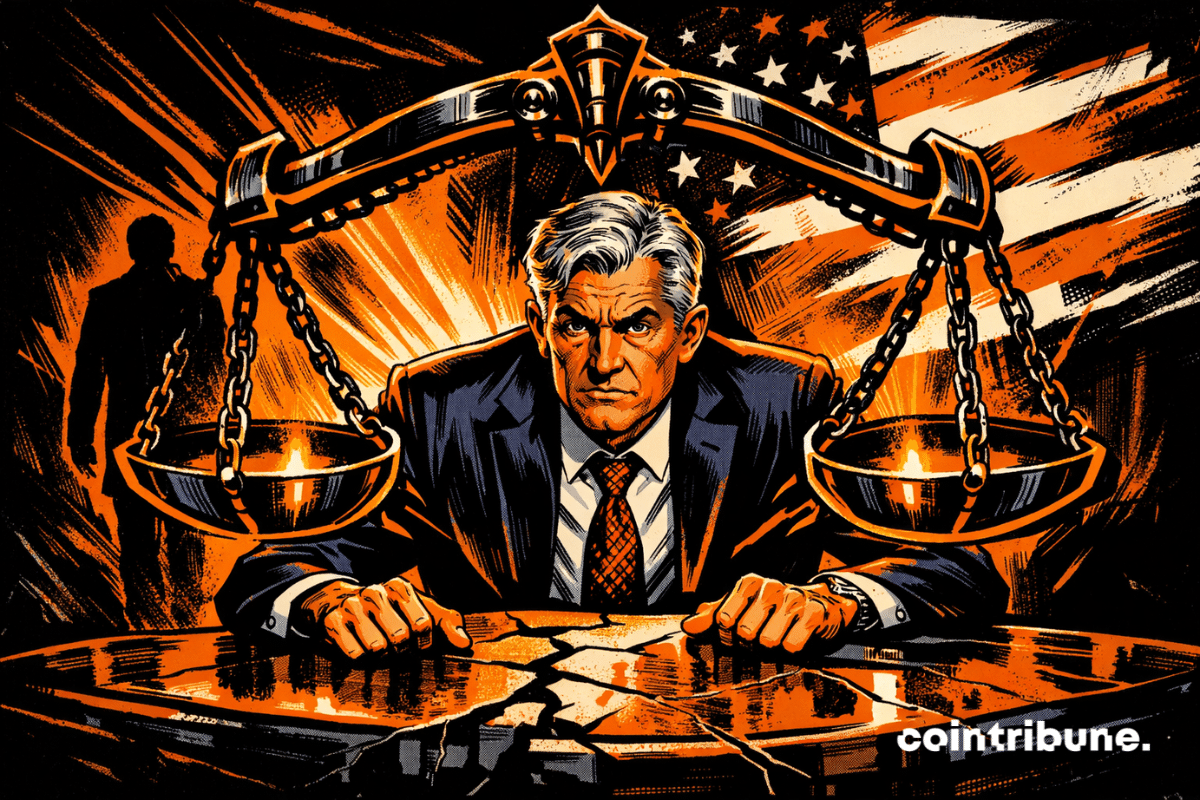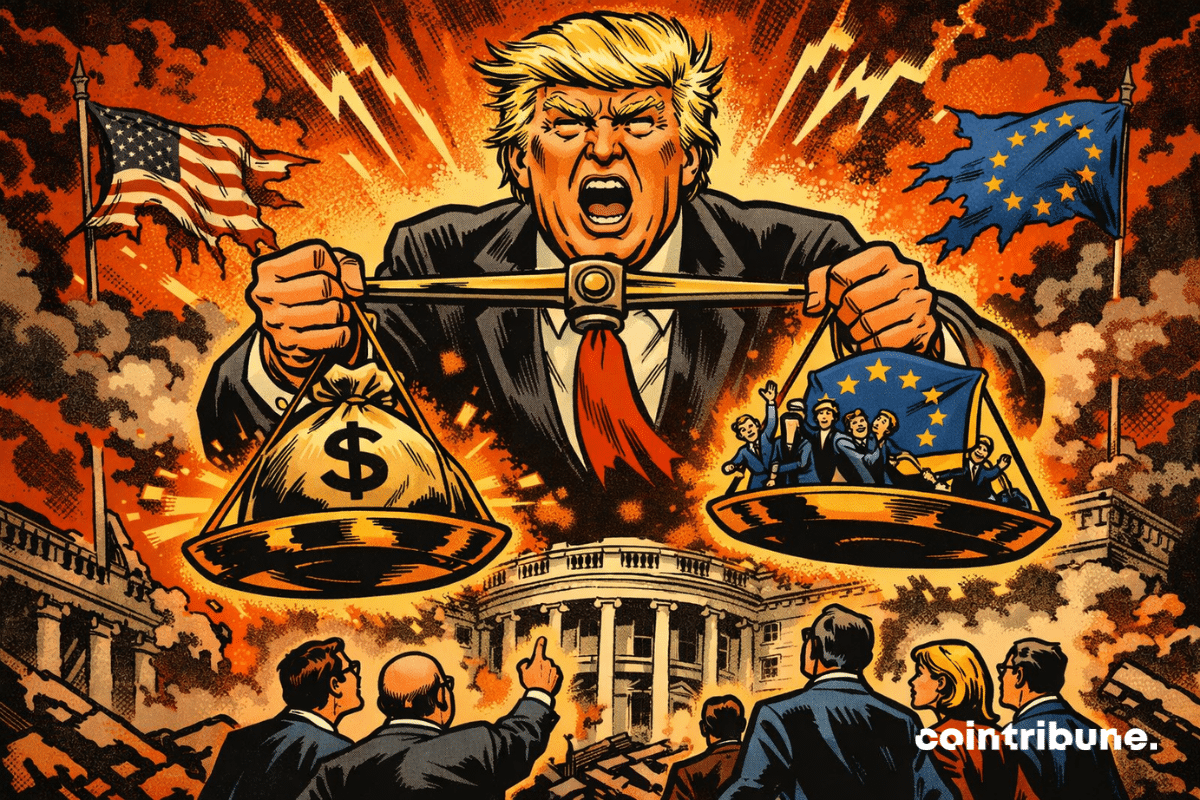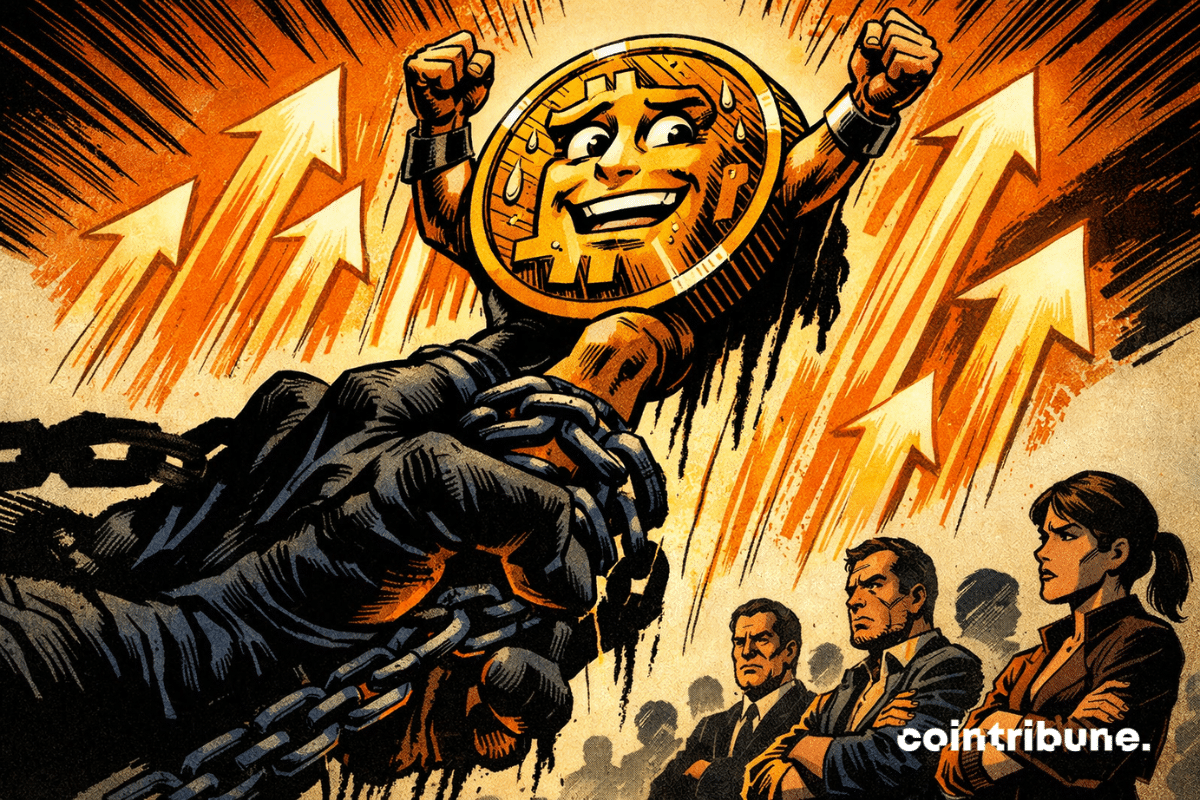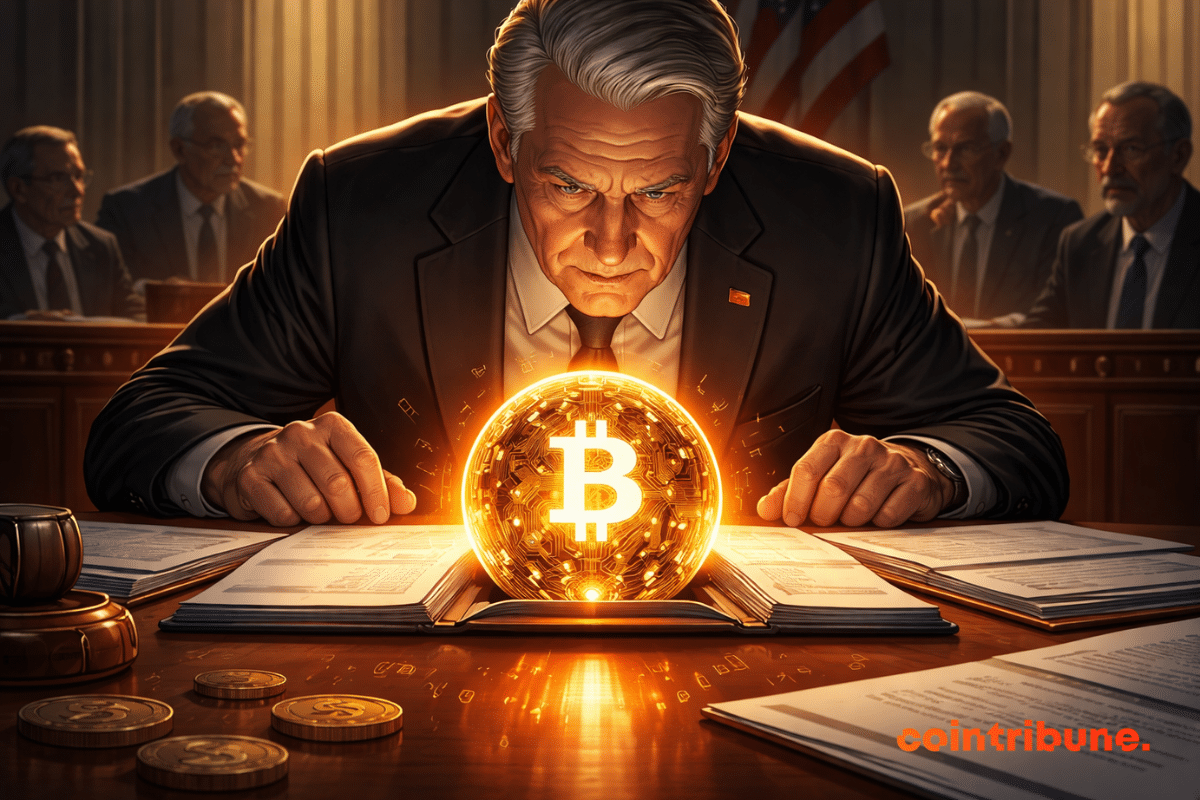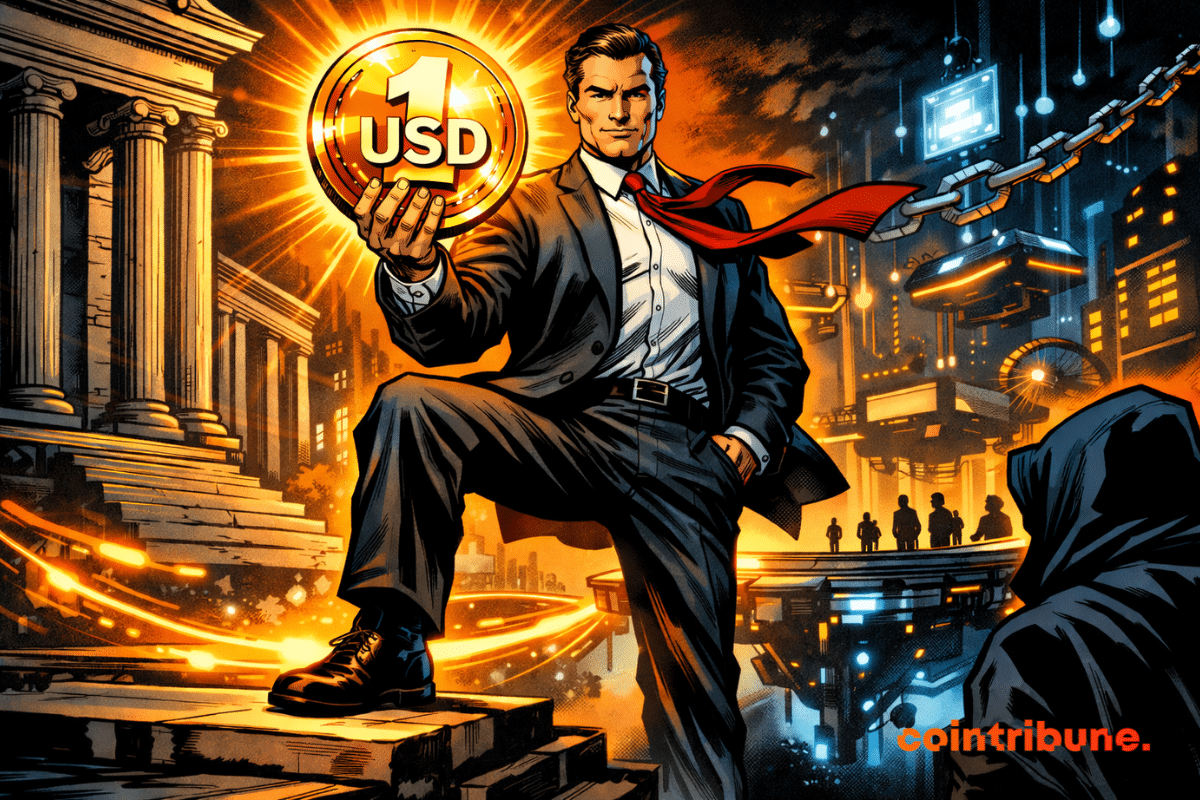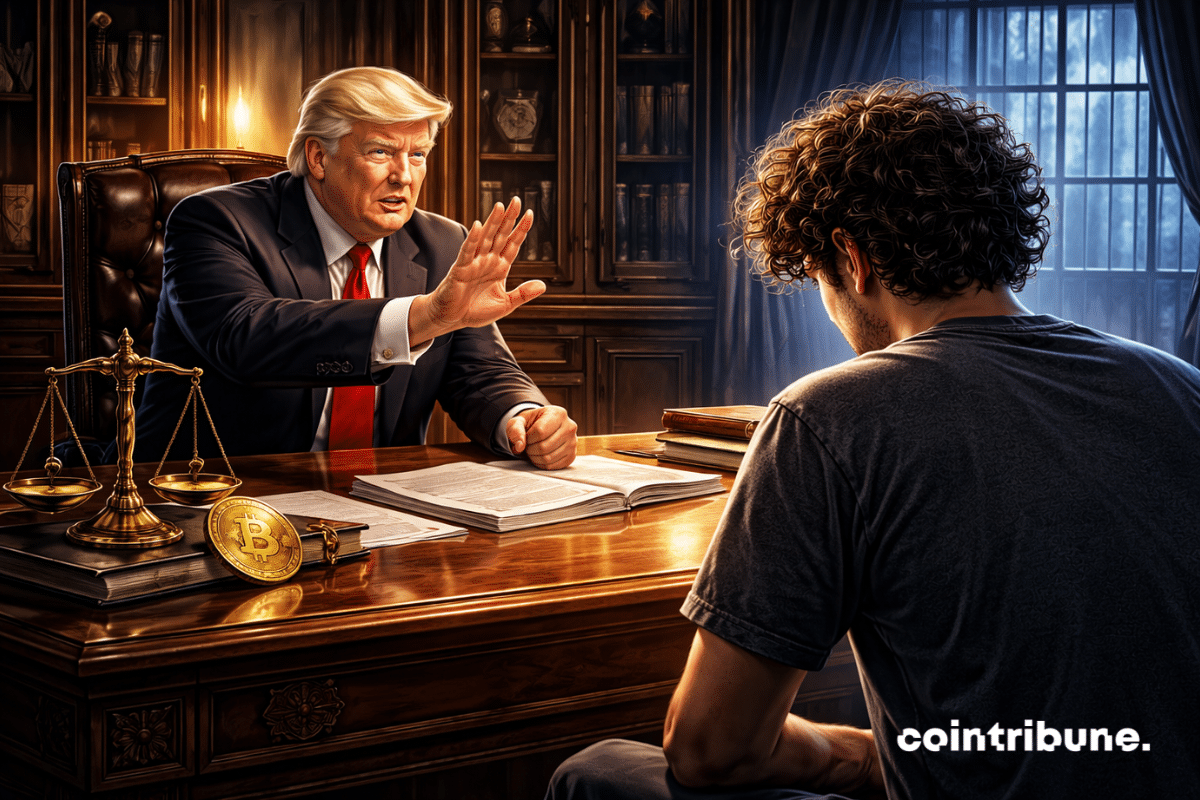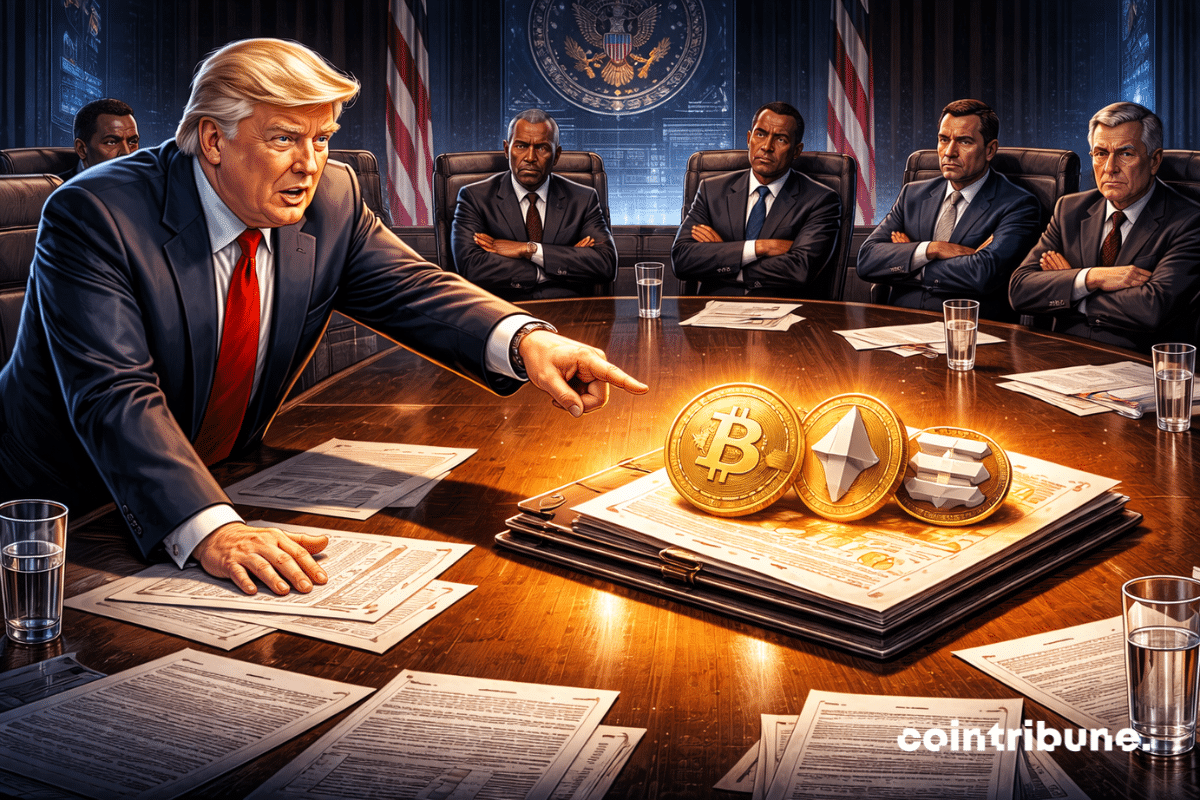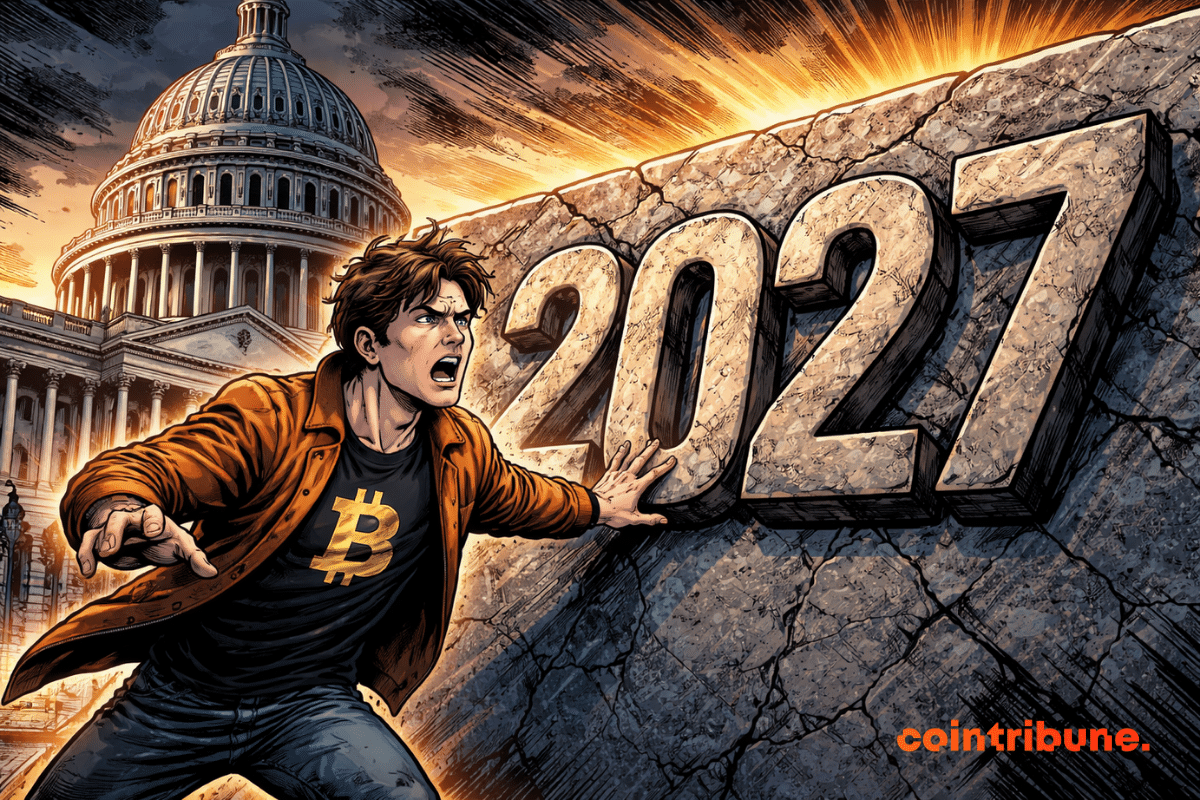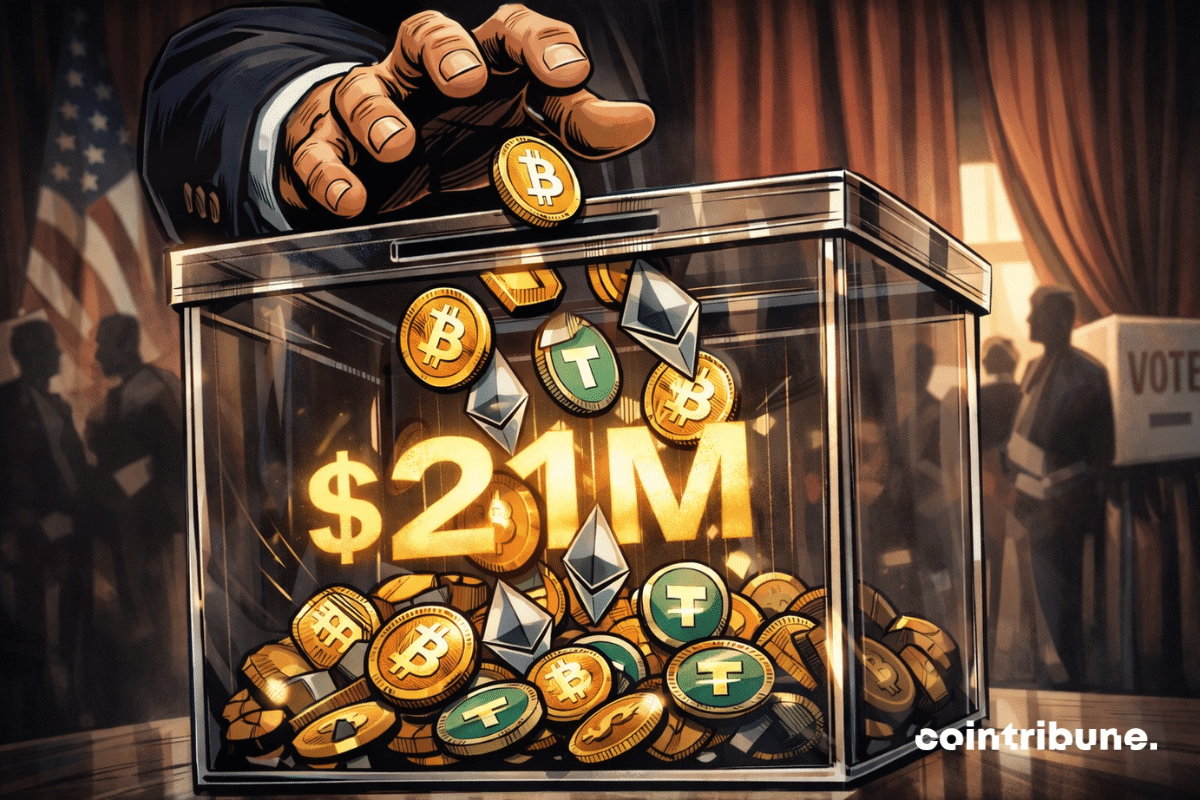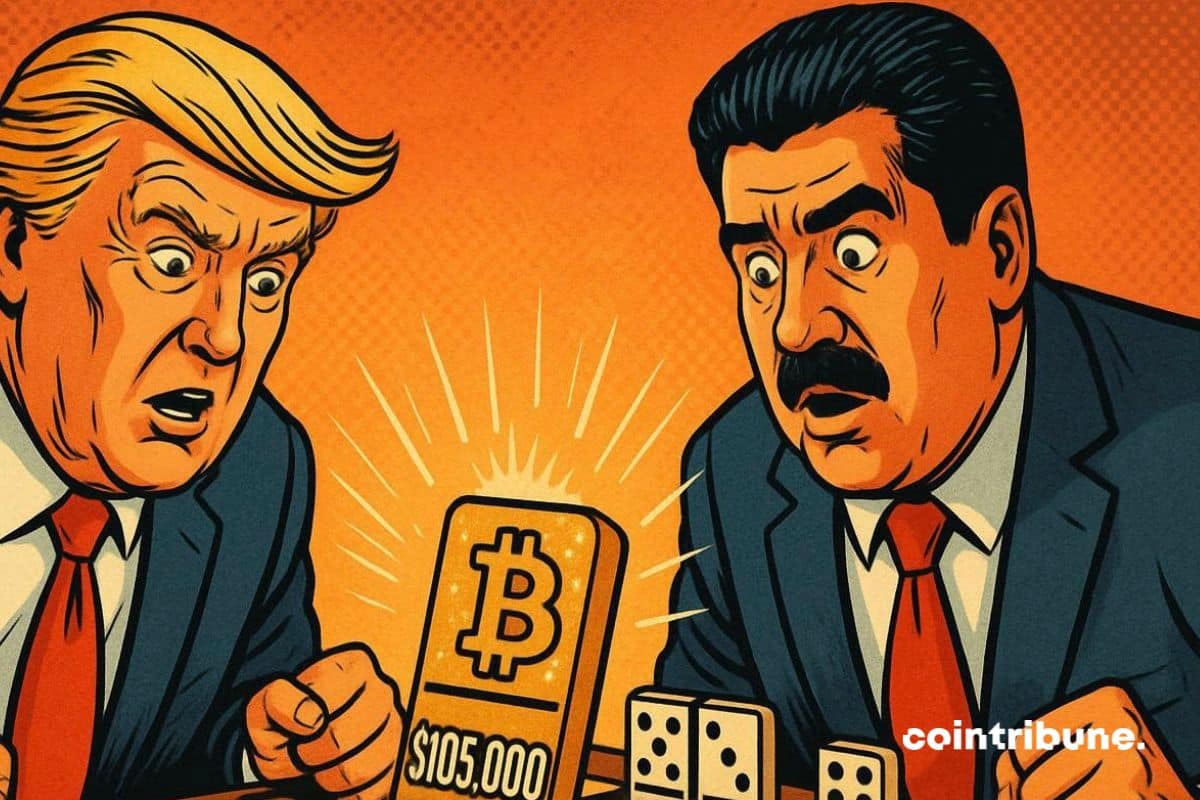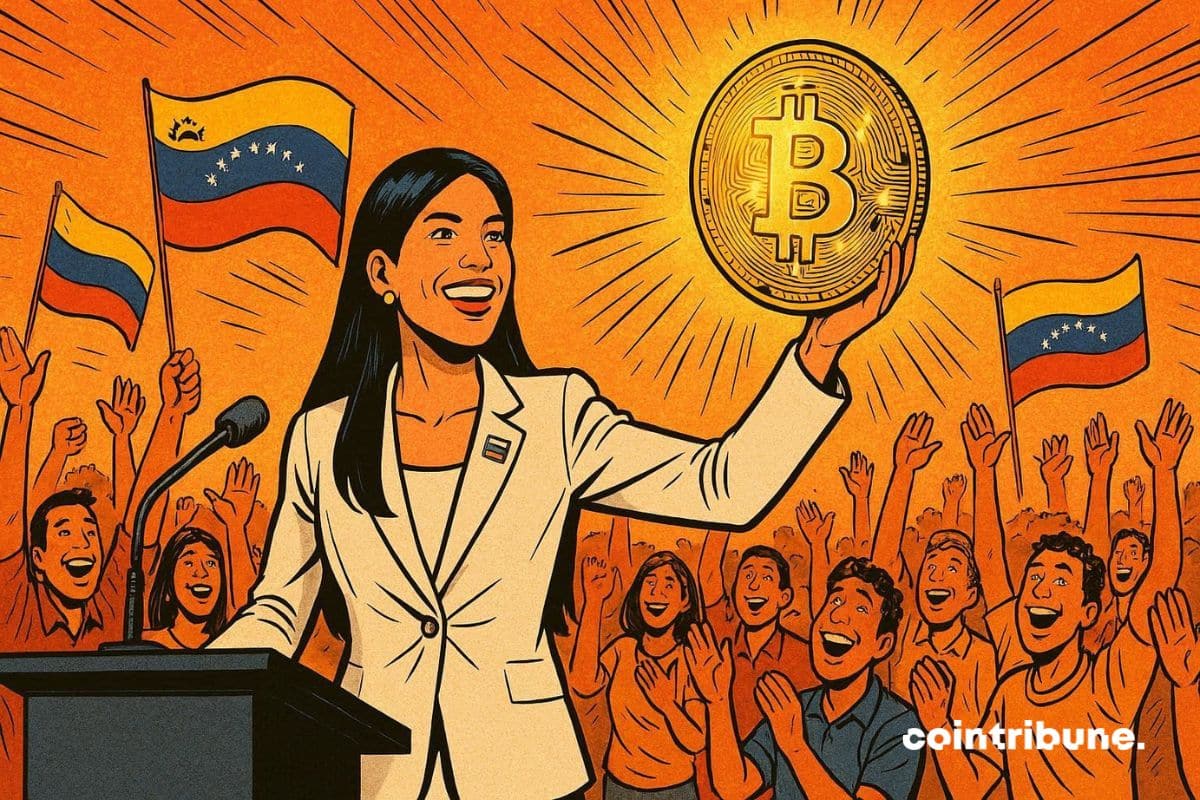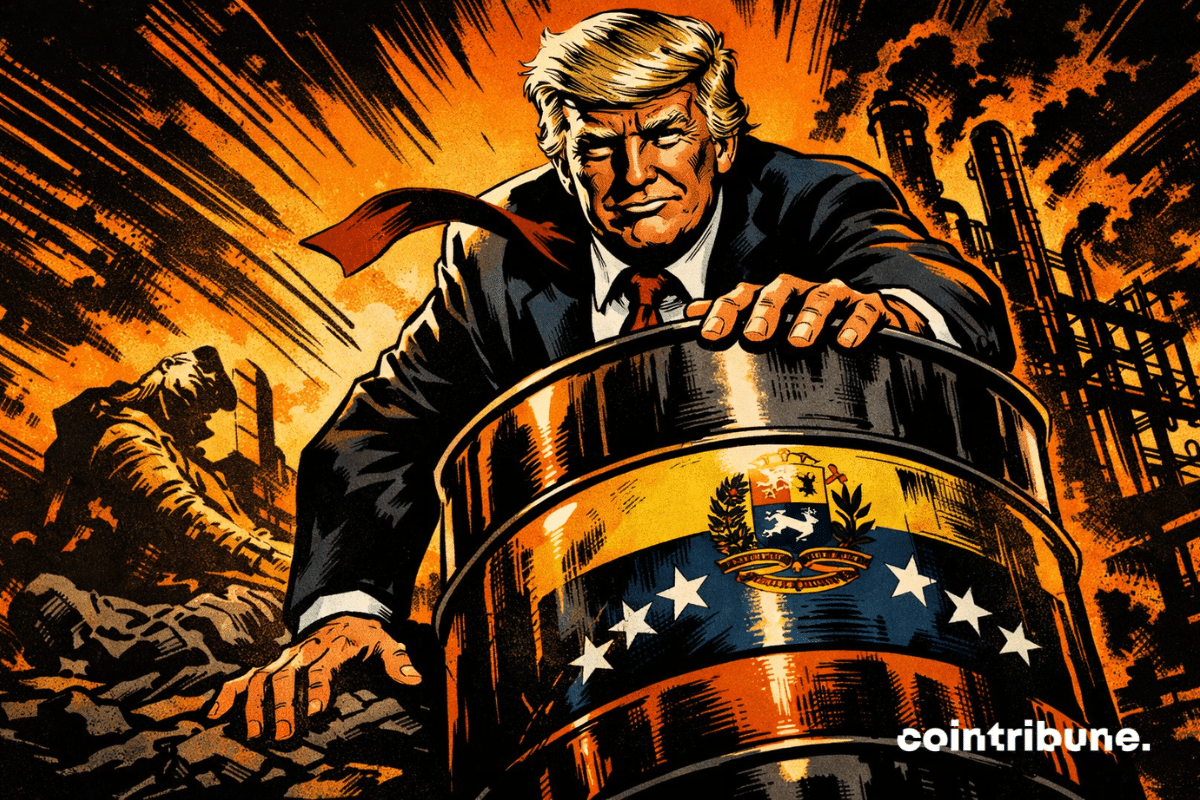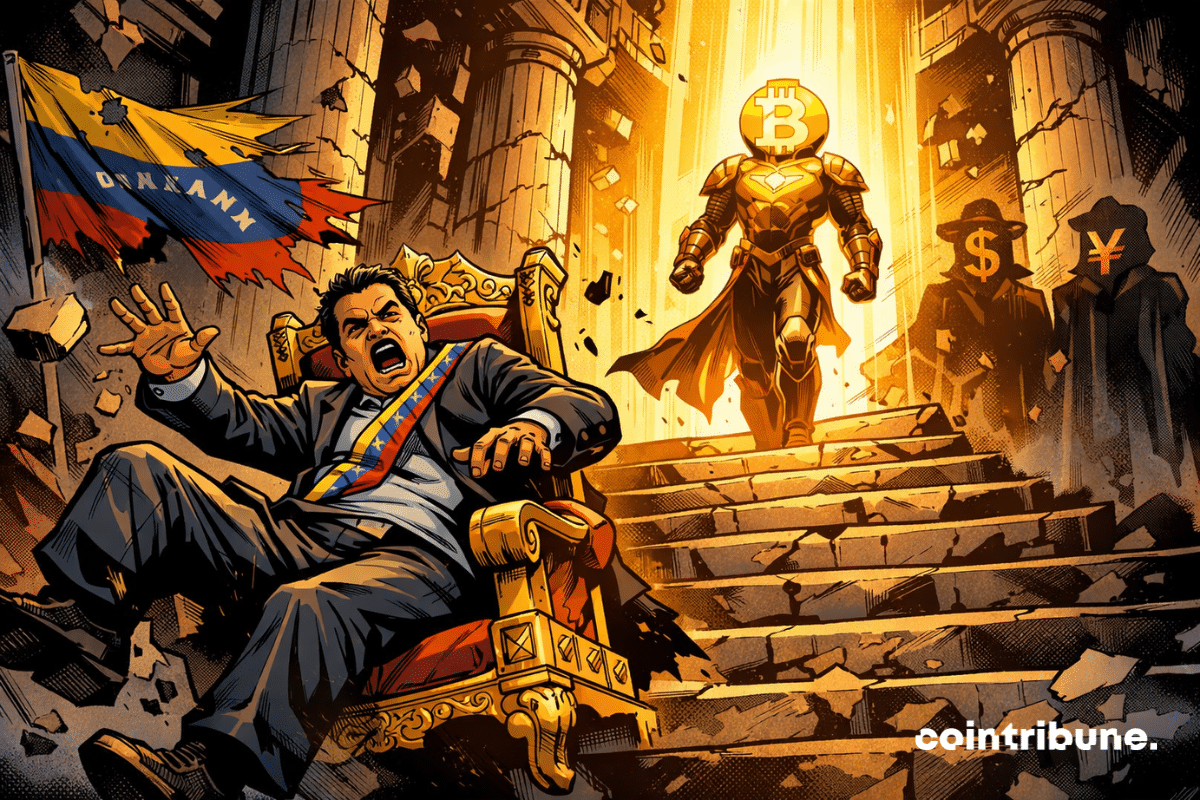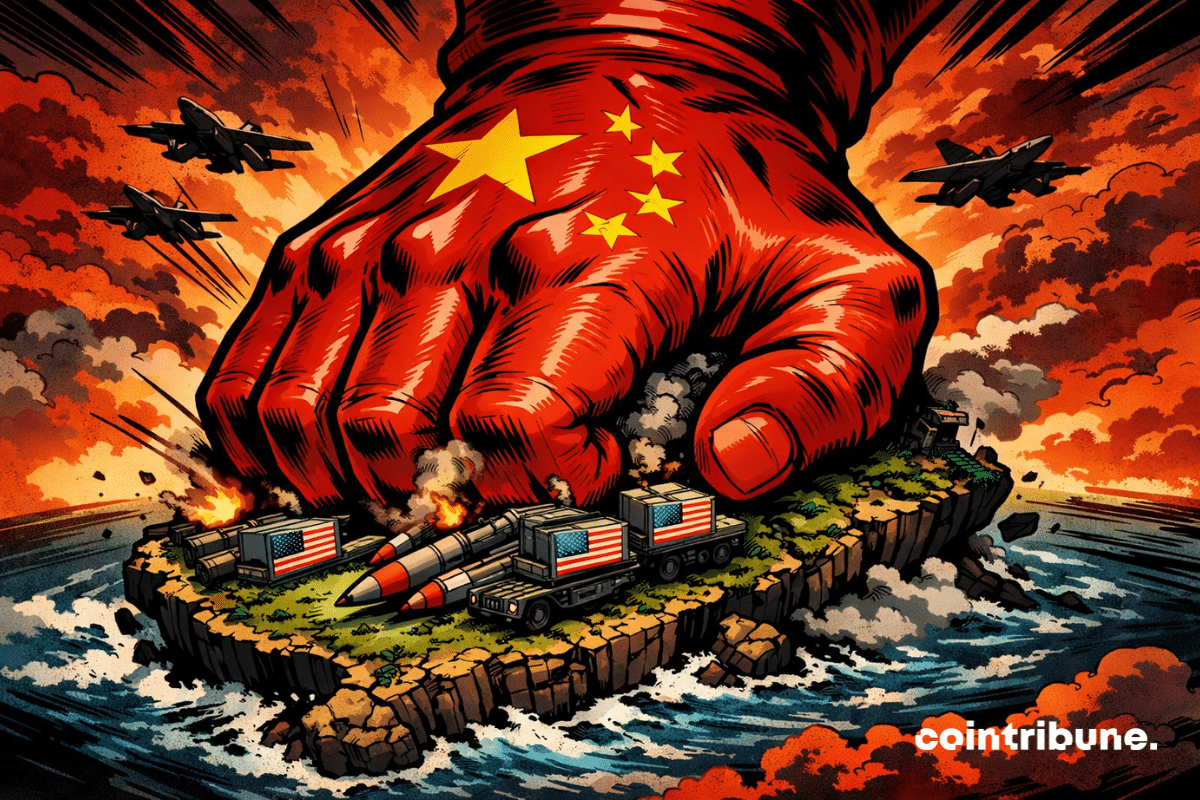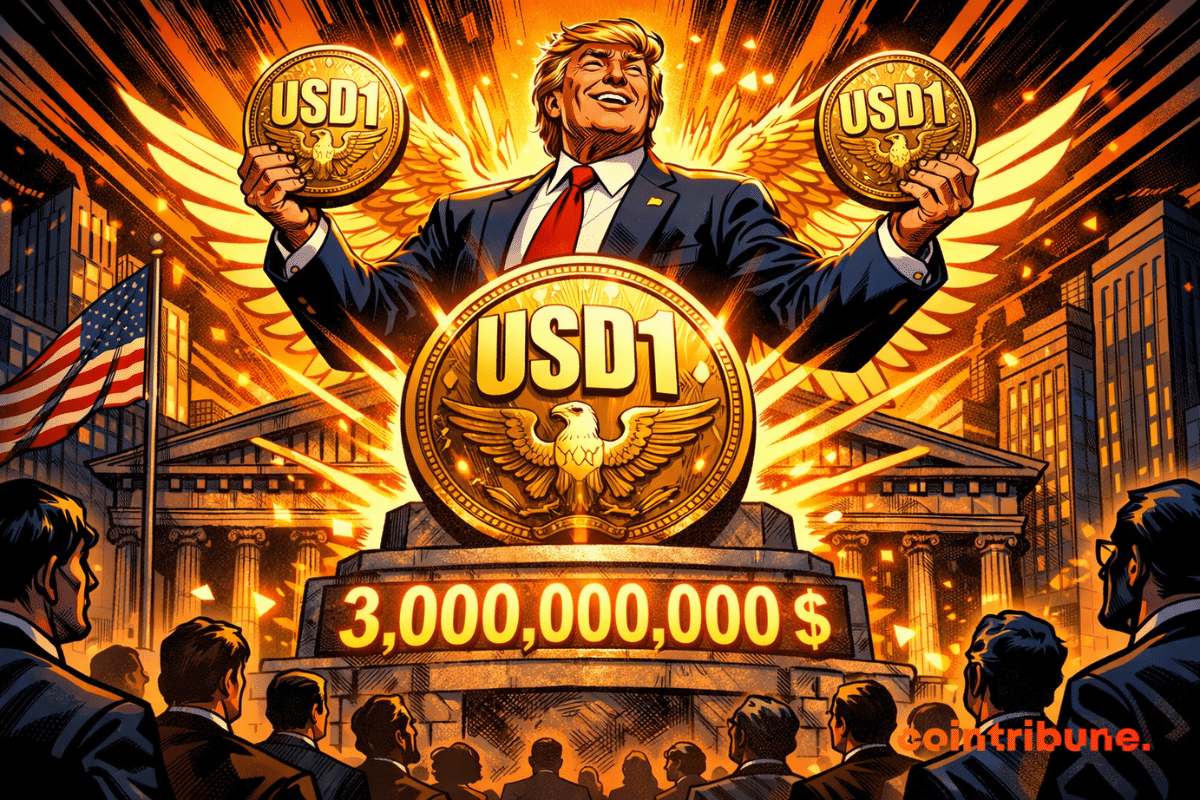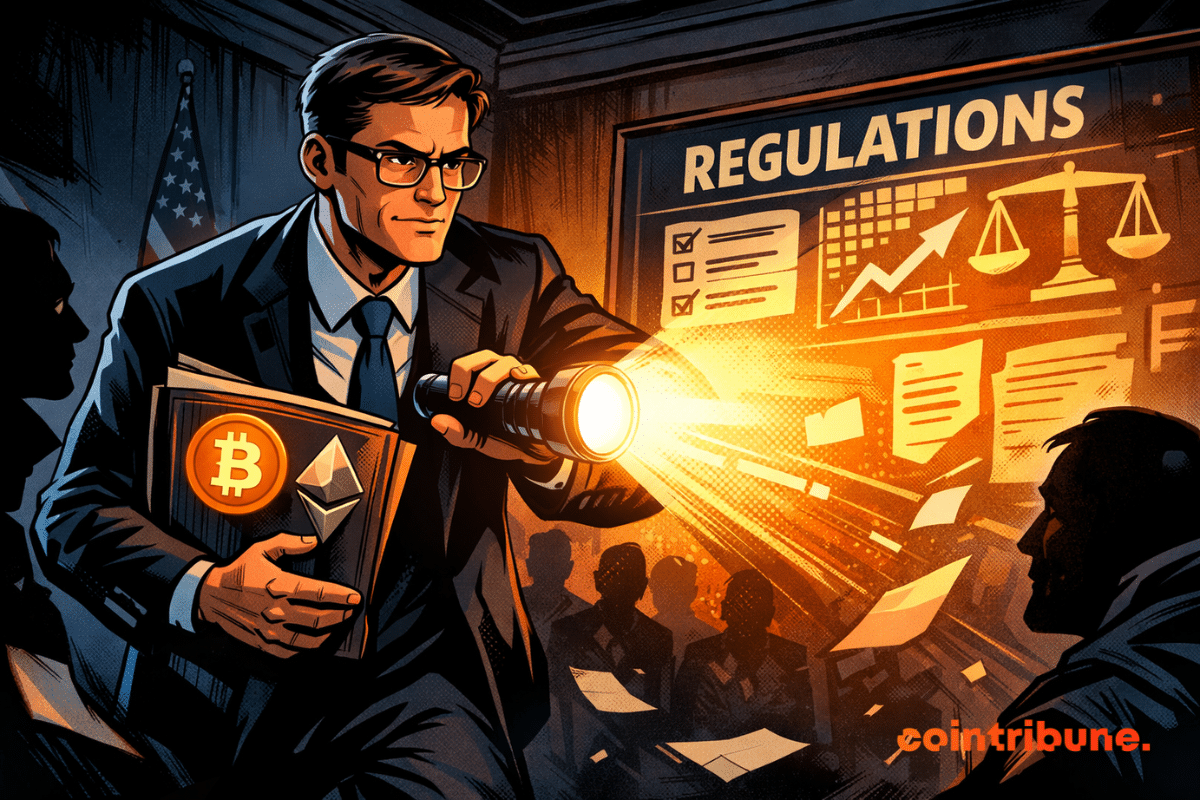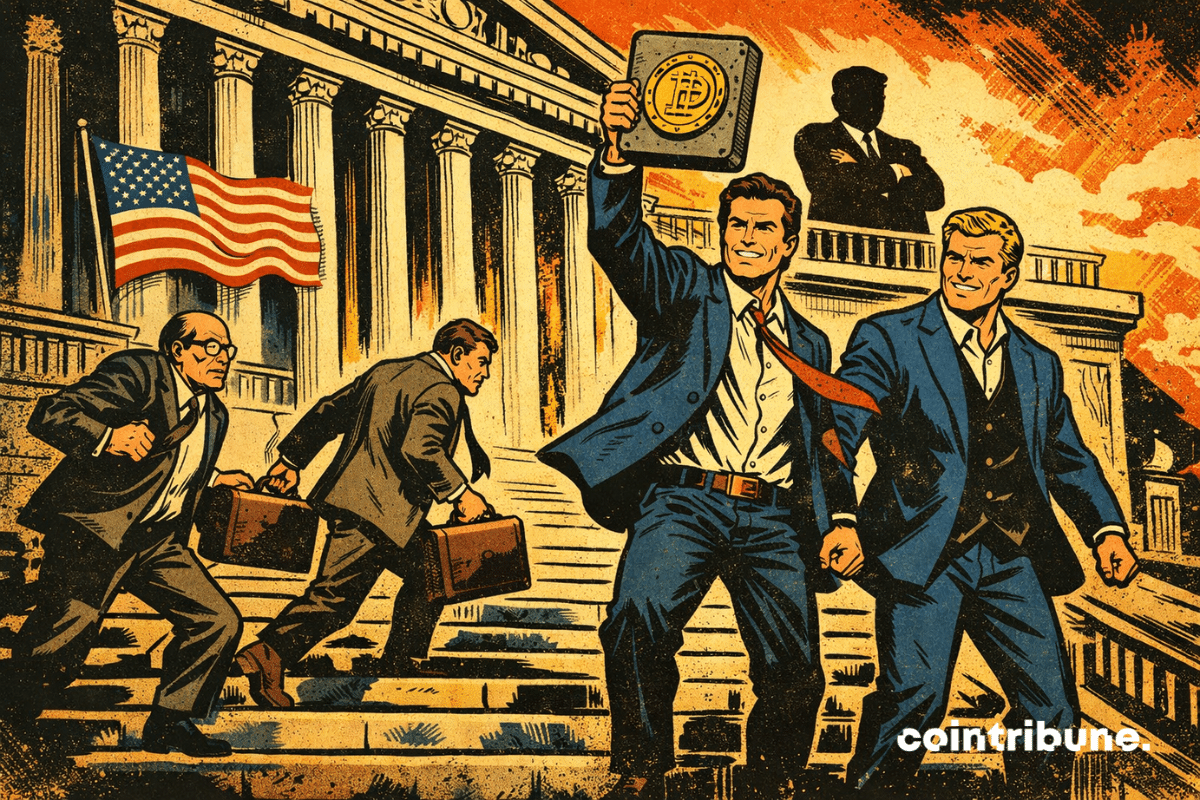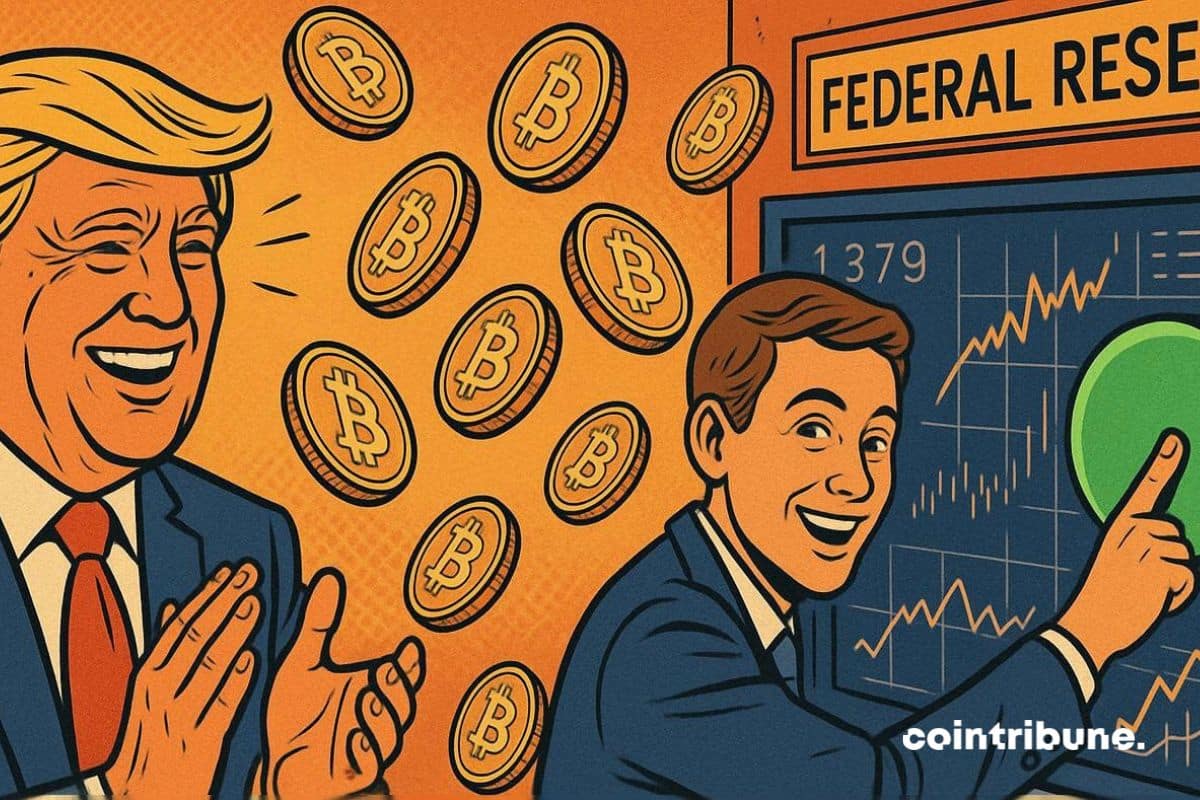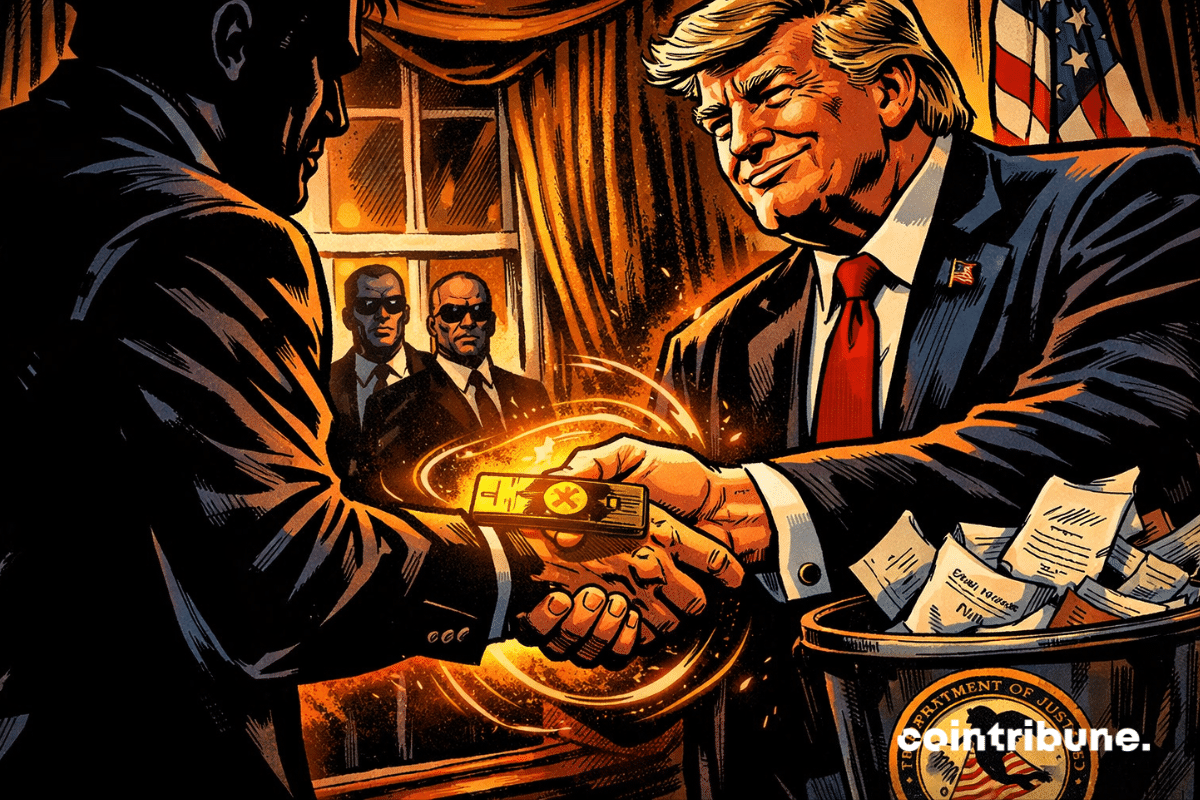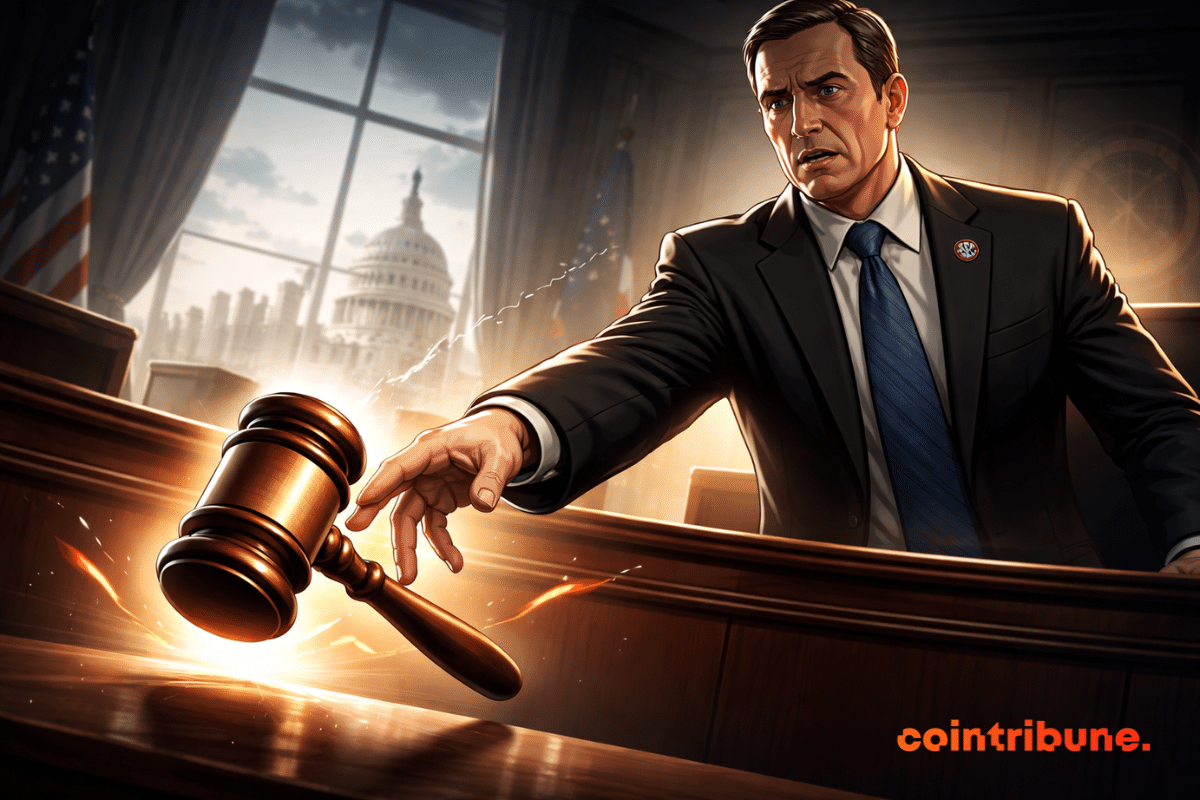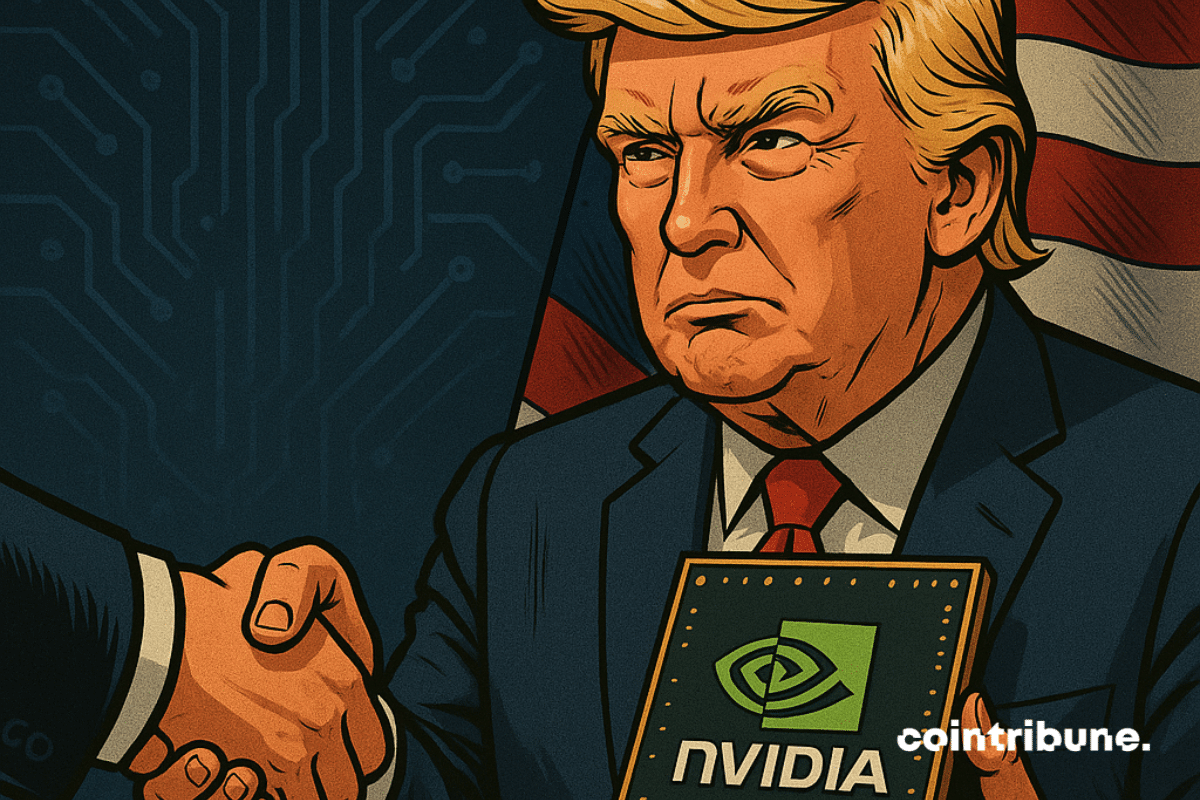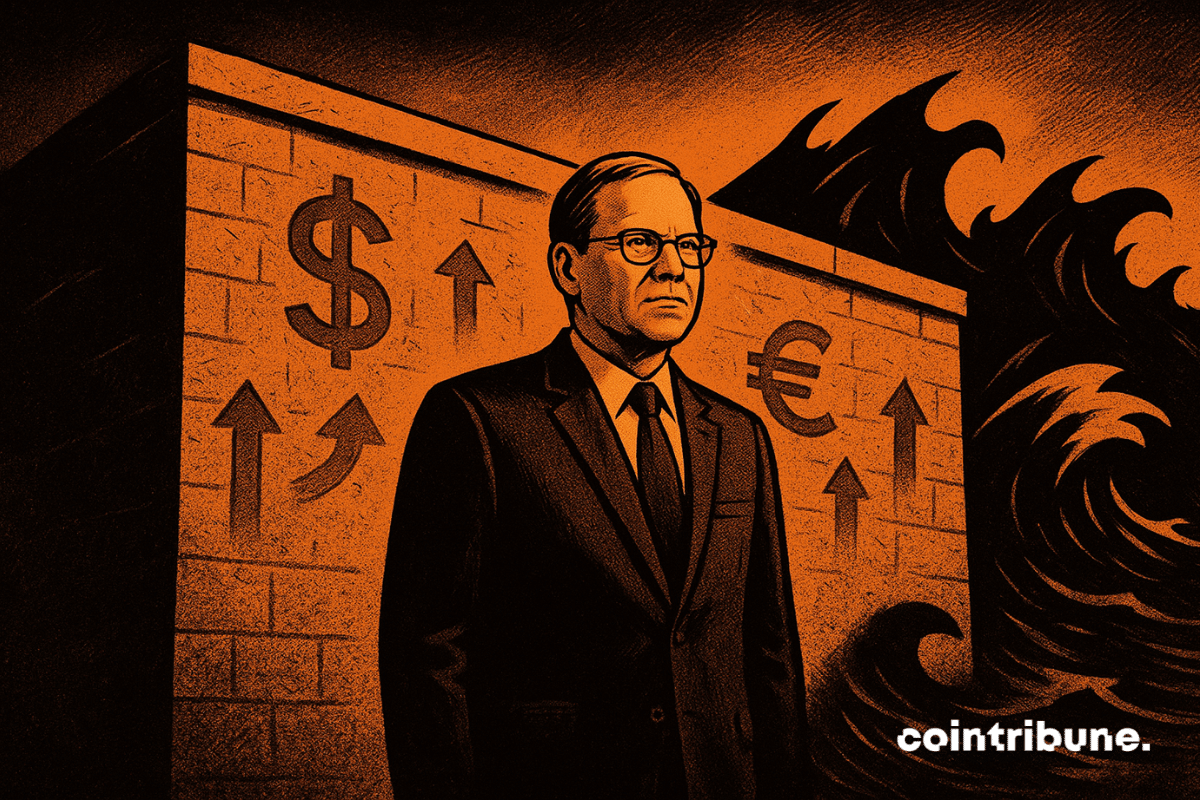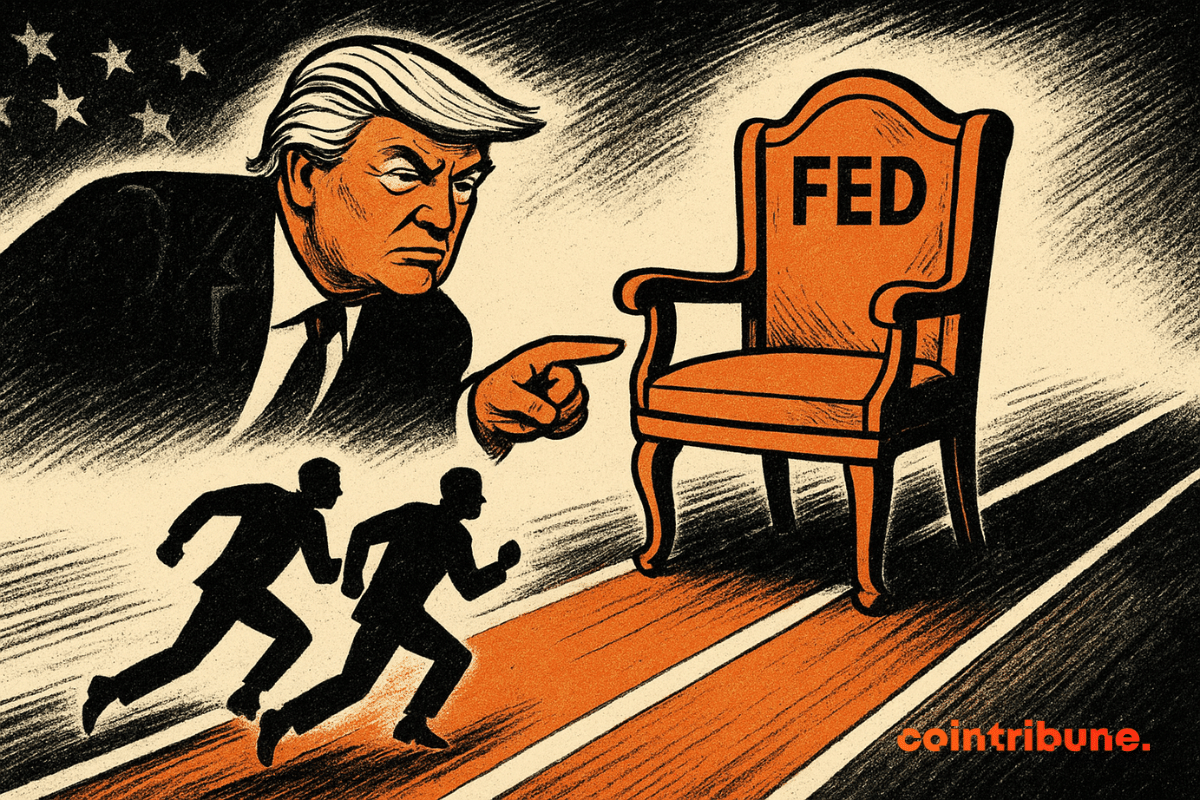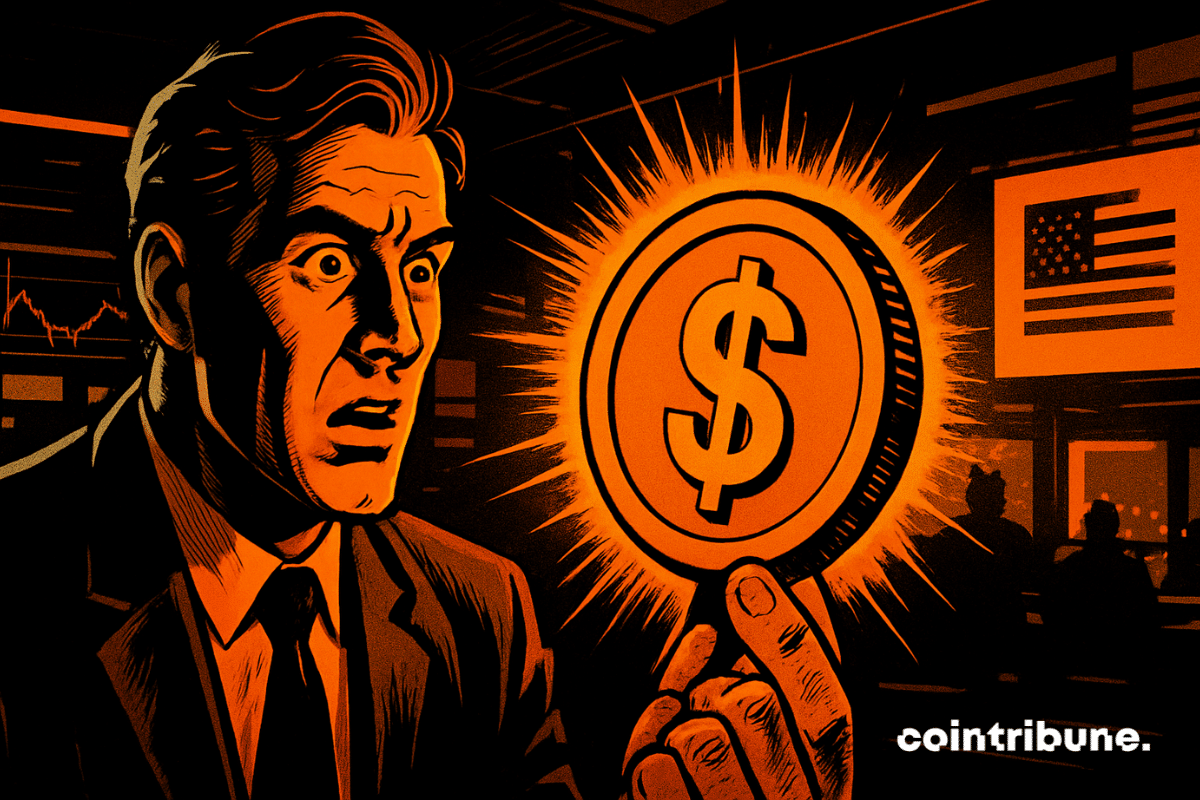Kevin Hassett has withdrawn from consideration to lead the U.S. Fed, narrowing the field in a leadership contest increasingly shaped by political and legal pressure. President Donald Trump has made clear that he prefers Hassett to remain in his current White House role. And this stance has effectively removed him from contention and reshaped expectations around the Fed’s next chair.
Donald Trump
Trump dreams of buying Greenland, taxes his allies, and awakens European pride: Brussels finally draws its economic bazooka, ready to fire faster than its diplomatic shadow.
Announced as a historic breakthrough, the strategic Bitcoin reserve desired by the United States remains at a standstill today. Nearly a year after the decree signed by Donald Trump in March 2025, no BTC acquisition has been made. Legal blockages and persistent administrative confusion are the causes. Officially a priority, the project is stalling, giving way to growing criticism from the crypto community, disappointed by the lack of concrete actions and the absence of a clear government strategy.
An explosive case shakes the crypto market: three Polymarket whales targeted for suspicious bets on Venezuela. Details here!
Gold and silver closed 2025 at record highs, and that rally has accelerated into early 2026. A combination of strong demand, constrained supply, and rising political uncertainty is driving investors toward precious metals. New concerns about central bank independence have further intensified buying pressure.
Despite the frenzy around Bitcoin, some signals cool the optimism of crypto traders. Discover the details in this article.
U.S. Senate lawmakers are advancing efforts to establish a clear regulatory framework for crypto markets, marking a pivotal moment for digital asset oversight in the United States. Two Senate committees are preparing to debate competing versions of a long-anticipated market structure bill, setting the stage for negotiations that could determine how the industry is governed for years to come.
A new piece is added to the crypto puzzle: World Liberty Financial, supported by Trump’s entourage, wants to turn the stablecoin USD1 into the locomotive of decentralized finance.
Donald Trump has refused to grant a pardon to Sam Bankman-Fried, the former CEO of FTX, involved in one of the biggest scandals in crypto history. This decision, far from anecdotal, raises questions about the balance between politics and the crypto industry. It also raises issues about sector regulation and the future of executives accused of fraud, in a context where investor and regulator confidence is already weakened.
The political shift in 2026 could disrupt much more than the White House. For the crypto industry, the fragile balance between executive power and pro-innovation legislative support achieved under Trump is already threatened. Ray Dalio sounds the alarm: the upcoming midterm elections could overturn the majority in Congress and slow the American crypto agenda. Amid political uncertainty and economic pressures, a new cycle of regulatory instability seems to be emerging.
TD Cowen Warns U.S. Crypto Market Structure Bill May Be Delayed Until 2027 as Political Hurdles Grow
Efforts to establish clear rules for the U.S. crypto market are likely to take longer than many industry participants expect. An analysis from TD Cowen indicates that while passage remains possible in the near term, political dynamics in Washington increase the likelihood of delays. Approval may not occur until 2027, with full implementation extending to 2029.
Crypto magnates to the rescue of Trump: when tokens waltz and senators hesitate, who is really manipulating whom? Has digital democracy found its biggest speculator?
Venezuela, plagued by record hyperinflation and an unprecedented political crisis, could well become the catalyst for a Bitcoin surge to $105,000 in a few days! Between massive adoption, economic sanctions, and political transition, crypto is establishing itself as the ultimate solution.
Venezuela, in the midst of a political crisis, sees María Corina Machado, Nobel laureate and pro-Bitcoin, emerge as a key figure of the transition. Could her commitment to cryptocurrencies redefine the country's economy and make it a model for nations in crisis? The future is now at stake.
U.S. President Donald Trump said Saturday that reviving Venezuela’s oil industry will be a central focus of Washington’s intervention following the removal of President Nicolas Maduro, framing the effort as both a geopolitical and economic play. Speaking from Mar-a-Lago, Trump said U.S. energy companies are expected to take a leading role in repairing the country’s oil infrastructure while the United States oversees a temporary transition of power.
While Donald Trump promises to revive the Venezuelan economy through a strong comeback of its oil industry, the major players in the American oil sector remain skeptical. Behind the stated ambition, the facts are relentless: crumbling infrastructure, political instability, and widespread distrust in the markets. Both Wall Street and the oil majors see this project as a high-risk gamble, with colossal costs and no guarantee of success. Venezuela's rebound under Trump might well remain an illusion.
The dollar pulls the strings, Maduro falls, Kiyosaki philosophizes... and bitcoin rises! Simple coincidence? Not sure, but it's worth a little tour behind the scenes of oil.
Bitcoin has just crossed $91,000, driven by a wave of political instability in Venezuela. The arrest of Nicolás Maduro and Donald Trump's announcement that the United States intends to lead the country have revived speculation about the economic and energy future of the region. In a crypto market always hypersensitive to geopolitical tensions, this sharp price increase reflects both the ambient uncertainty and investors' appetite for decentralized assets.
An annoyed Dragon, a relaxed Trump, missiles on the move: the global economy wobbles while Taiwan grits its teeth, and Beijing flexes its muscles to play war.
Trump launches a stablecoin, Binance rolls out the red carpet, and here is USD1 at the top. Political coincidences or decentralized finance with a MAGA twist? The crypto story is written in capital letters.
When Trump dreams of a crypto-compatible America, he appoints a former SEC member to the CFTC. Endorsed by Web3 stars, Michael Selig promises rules, not slaps. To be continued...
The Polish Parliament has just defied its own president by reactivating a controversial crypto bill, despite a clear veto. Between forced alignment with European rules and fears of market strangulation, Warsaw is playing with fire. Why could this political standoff redefine the future of cryptos in Europe?
New Trump splash: two pro-crypto figures take the reins of the CFTC and the FDIC. All the details in this article!
Donald Trump promises a historic shift to the Fed with drastically reduced interest rates. A revolution that could propel Bitcoin to new heights. Between speculation and opportunities, the crypto market holds its breath. Is BTC ready to become the big winner of this monetary transformation?
President Trump says he will review the case of Samourai Wallet co-founder Keonne Rodriguez, raising hopes for a possible pardon.
Regulatory pressure on the US crypto sector has eased sharply since President Donald Trump returned to office. Enforcement priorities at the Securities and Exchange Commission have shifted, with crypto firms now facing far fewer legal actions than in previous years.
In 2025, Nvidia is no longer just a capitalization machine. The company has found another acceleration, this time political. Donald Trump, against part of his own camp, chose to open a very costly door for it.
Kevin Hassett, a leading contender to chair the Federal Reserve (Fed), said the central bank would remain independent even if it faces pressure from the White House. His remarks come as financial and crypto markets watch closely for signals on interest rates and the future path of U.S. monetary policy.
Markets are watching closely as the race to lead the US Fed continues, with political pressure on interest rates building. Recent comments from Jamie Dimon and Donald Trump suggest the outcome remains uncertain, with potential consequences for monetary policy and risk assets, including crypto.
The world's largest crypto exchange platform strengthens its ties with the Trump family. Binance has massively integrated USD1, the stablecoin from World Liberty Financial, into its infrastructure. A rapprochement that comes just weeks after the presidential pardon granted to its founder.
